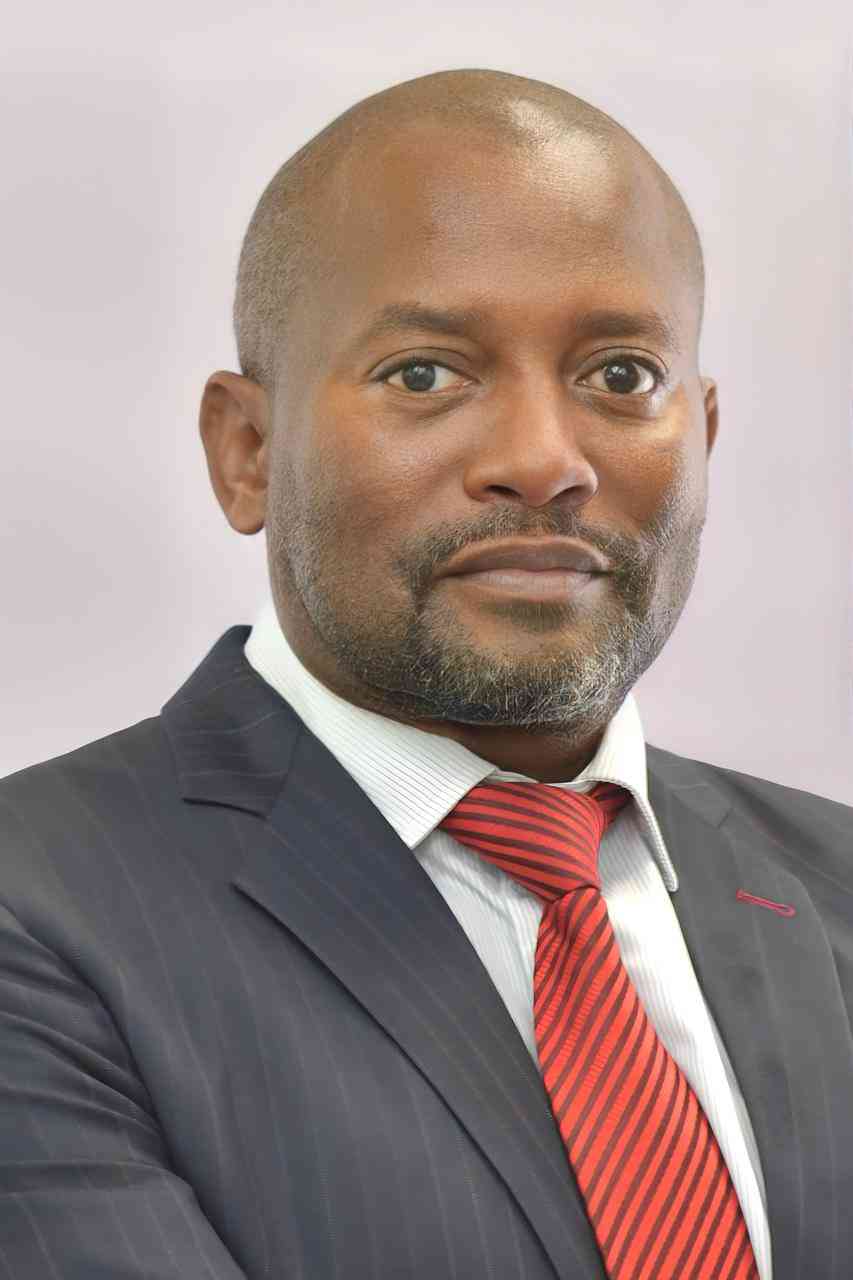
HARARE – Zimbabwe is a sleeping economic giant which can be awakened by embarking on programmes to empower youths who form the bulk of the population of the country.
Byron Mutingwende
The Ministry of Youth, Indigenisation and Economic Empowerment is responsible for putting into operation Cabinet’s resolutions and policies on youth, indigenisation and economic empowerment.
The Ministry administers the Indigensation and Economic Empowerment Act (Chapter 14:33) as read with the Indigenisation and Economic Empowerment (General Regulations, 2010).
Chairperson of the Portfolio Committee on Youth, Indigenisation and Economic Empowerment, Justice Mayor Wadyajena said the intention of the above legislation is to make empowerment a lasting feature of our body politic in order to guarantee meaningful participation by youths and other marginalised groups like women and the physically challenged.
Wadyajena urged the youth to acquaint themselves with laws that deal with their concerns in order to make informed decisions and take appropriate action where necessary.
“As an organisation that is committed to the full participation of the youth through sustainable development, I challenge you to acquaint yourselves with the revised National Youth Policy, the Youth Council Act, the Indigenisation and Economic Empowerment Act and the Zimbabwe Agenda for Sustainable Socio-Economic Transformation (ZimAsset),” Wadyajena told delegates at a forum organised by Youth Empowerment and Transformation Trust (YETT) for Members of Parliament and youth leaders in Harare recently.
ZimAsset, Zanu PF’s economic blueprint that remains unknown to most youths, notes that economic growth can be achieved through availing and increasing economic opportunities for women, youths and the physically challenged in communities in conformity with the Indigenisation, Empowerment and Employment Creation thrust.
- Chamisa under fire over US$120K donation
- Mavhunga puts DeMbare into Chibuku quarterfinals
- Pension funds bet on Cabora Bassa oilfields
- Councils defy govt fire tender directive
Keep Reading
Tinashe Gumbo, a researcher on youth policies and programmes told NewsDay that while government had policies meant to empower youths, it needed to craft youth-sensitive budgets.
“A National Budget is central to policy implementation as most of the major provisions of policy need resourcing. Stakeholders such as youth organisations and organised groups at grassroots level have to participate in the budget processes,” Gumbo said.
He bemoaned the fact that youth empowerment and participation in national processes is limited. He said that few youths held leadership positions in the constitution-making process that ushered in a new governance charter for the country.
“Unemployment and inaccessibility of national resources remain the central challenge to many youths in the country. Apart from the fact that industries are comatose and agricultural production remains distressed, inadequate education and skills development for enhancement of youth employability are scarce,” Gumbo said.
Gumbo added that there was need to improve the provision of heath services since HIV and Aids and other diseases have not spared the youths.
Youthful leader of the Coalition against Corruption (CAC), Terry Mutsvanga said there was need to put in place mechanisms that will enable the formal sector to absorb youths after school. He added that provision of financial support to youth initiatives was also of paramount importance.
Mutsvanga reiterated the fact that financing publicity of government youth schemes was important for promoting accountability.
“CAC feels that the government is not doing enough in as much as empowering the youth. Currently, a high number of youths are roaming the streets and the few who are running small projects are affiliated to certain senior government officials who connect them to access funds.
“CAC again notes that the Old Mutual fund that was availed to assist youth projects hasn’t benefited the youths as only a small percentage has had access to the funds. Hence there is need for greater paradigm shift in promoting the youths,” Mutsvanga said.
Sally Dura, chairperson of Youth Forum applauded the move by government to increase the enrolment of youths in vocational training centres from the current figure of 7 300 to 50 000 by the end of 2014 as it drives towards its target of 500 000 by 2018.
Dura was responding to revelations by deputy youth minister Mathias Tongofa that government was rolling out a programme meant to increase enrolment of youths in vocational training centres in line with the ZimAsset.
Vocational skills training, entrepreneurship development and mentorship have been identified as key vehicles to achieve sustainable youth economic empowerment.
“As Youth Forum we continue to urge the central government to ensure that there is implementation of all models developed for economic empowerment and sustainable livelihoods. We also advocate for equitable, fair and transparent distribution of resources among the Zimbabwean youth.
“It’s regrettable that there has been no deliberate policy on job creation and governmental programmes praised as empowering have been short-coming at best, for example the indigenisation.
“The Youth Fund has not been impressive with many grantees failing to return the loans nor making any meaningful impact in terms of entrepreneurial development. Moreover, it has been shrouded in controversy and allegations of corruption. We therefore call upon the government to make sure that all the marginalised youth benefit from these current government interventions,” Dura added.
International Labour Organisation (ILO) Zimbabwe chapter, cognisant of the importance of skills enhancement as a youth empowerment tool, embarked on Skills for Youth Employment and Rural Development programme which has so far trained more than 9 000 youth across nine provinces.
The programme is meant to create employment for young people in the rural areas of the country. Whereever it is being implemented it is giving good results by creating employment for beneficiaries, but also creating employers out of the youth. They are creating work for others.
“Due to the success of the programme, the ILO has been receiving many requests from government, youth and other stakeholders to expand and upscale. The programme is working through two methodologies: Training for Rural Economic Empowerment (TREE) in rural communities and Quality of delivery of training in Informal Apprenticeship (QIA) in the informal economy in urban areas,” said Alphonse Tabi-abodo, ILO country director for Zimbabwe during a media visit to project sites for the skills for youth employment and rural development project site in Mutoko.
In 2013, the government of Zimbabwe declared the methodology of the programme to be a National Framework to economic empowerment.
One of the beneficiaries of the project in the Chitora area of Mutoko South Constituency, Josephine Muchena, said the ILO programme had gone a long way in uplifting her livelihood.
“I want to thank ILO for bringing this project to this area. We were first trained on growing sweet potatoes and groundnuts. Armed with the skills we were able to apply for loans which we successfully got from MicroKing. We used the loan to buy inputs and pay farm labourers,” Muchena told NewsDay.
With over 400 buckets of sweet potatoes expected, Muchena will realise in excess of $3000 if her product is marketed well. The Mutoko TREE programme was successful with beneficiaries like Muchena not just improving their own lives, but the lives of their families as well as their communities.
Muchena employs locals to help her cultivate the fields and apply fertilisers and insecticides. For three times a month, she employs a group of seven labourers whom she pays $4 a day for assisting her with work.
Crops grown under the programme also include tomatoes, butternuts and maize — horticultural products which are on high demand in Harare. Apart from improving their income, beneficiaries and communities also have their nutrition improved.
Nicholas Goche, minister of Public Service, Labour and social welfare said the programme was in line with decent work country programme based on poverty reduction through Employment Creation, Social protection, reduction of HIV and Aids impact at the workplace and strengthening of social dialogue and tripartite consultation.
“Supplement to this, government through the new economic blueprint (ZimAsset) is closely working towards securing among its four clusters, social services and poverty eradication, as well as value addition and beneficiation, and this a clear nurtured strategy towards youth unemployment.
“It is, however, humbling to note that in efforts to alleviate these and other challenges towards youth unemployment in Zimbabwe, the ILO and its social partners, the Danish government in particular, have contributed immensely with commendable technical and financial support through the Skills for Youth Employment and Rural Development programme; its results for which is what we have gathered today,” Goche said in his solidarity read on his behalf.
Electoral processes disempower youths
YOUTHS from across the political divide feel the electoral processes in Zimbabwe disempowers the youths. While elections have always been held consistently since independence, the major worry is that few youths occupy positions of authority in political positions and are more often disenfranchised by not being registered to vote.
“In the 2013 elections, the ineffective voter registration process by the Registrar-General’s Office resulted in many young people failing to register. In addition Zimbabwe Electoral Commission (Zec)’s lack of capacity to conduct voter education during the registration process resulted in a large number of young people being unaware of the process,” said Itai Usayiwevhu from YETT.
He said the delay in granting CSO’s authority to conduct voter education also hampered Zec’s mandate to contribute to civic education. In addition, failure by Zec to disaggregate voters by age and gender can also lead to manipulation, he said.
While a significant number of youths participated as candidates in the last election, many of them participated in areas that were not strongholds of their parties. To that end, there is need to advocate for political parties to develop quota systems to ensure youth representation.
The support of youthful candidates across the political divide might translate into a lot of young people generating interest to support their peers leading to economic empowerment.
Youths in civic society also play a critical role in forwarding youth agendas in governance and social issues. Youth-based and youth-led organisations made a magnificent contribution in the last election through encouraging youths to vote.
However, they were hampered by restrictive legislation to conduct activities. The challenges were that political parties’ rallies would clash with activities of youth-led civic organisations resulting in the reduction of people attending meetings. Youth participation would have been greater if youth organisations were given mandate to educate people on time.
“The use of music by youthful artistes was one of the most effective methods of drawing crowds and providing safe spaces for information dissemination. Going forward, there is need to work with community-based youth organisations for sustained dialogue with the regulating authorities to increase cooperation,” Usaiwevhu said.
It was also noted that there is need for more time and for civic actors to educate young people on the electoral process.
Zec and the Registrar-General’s Office were urged to find ways of making the registration process more youth friendly, but not a process that can be easily manipulated.
On the other hand, political parties need to package their messaging of issues relevant to youths so that more young people can find relevance in participation.
The Constitution must be used to advocate for an environment that allow youth organisations to carry out activities aimed at increasing participation of youths in elections without fear of wanton arrests.
Participation of the youth in all spheres of the country’s socio-economic and political life will ensure economy prosperity for the country.











